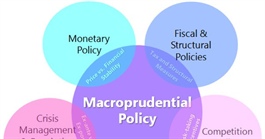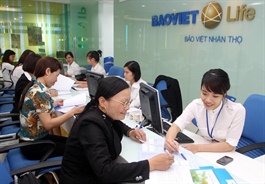Banks start capital hike race in 2022
Banks start capital hike race in 2022
The charter capital increase of the banking industry this year is starting to heat up with many banks simultaneously implementing related plans.

SeABank announced it would close the list of shareholders on June 17 this year to pay dividends in shares and issue shares to increase capital from the bank’s equity in Q2 and Q3 2022. Specifically, the bank will issue 211.4 million shares to pay 2021 dividend and issue 109.7 million shares from the equity source to increase capital.
At the same time, SeABank will also issue 59.4 million shares under the employee stock ownership plan (ESOP) in 2022.
After the issue, SeABank’s charter capital will increase from nearly VND16.6 trillion (US$715.6 million) to more than VND20.4 trillion in the second and third quarters of this year.
Many other banks, such as Viet Capital Bank (BVB), Orient Commercial Bank (OCB) and Asia Commercial Bank (ACB), have recently got a nod from the State Bank of Vietnam (SBV) to increase capital.
Under the SBV’s approval, BVB was allowed to increase its charter capital by VND1.61 trillion to nearly VND5.29 trillion. The capital will serve the bank’s development requirements in the medium and long-term such as technology and material base improvement and network expansion.
Similarly, OCB was approved to raise its charter capital by an additional VND59 trillion, of which VND50 billion would be raised through selling stocks to the bank’s staff under the ESOP, and VND8.82 billion to be sourced through private placement to Japan’s Aozora Bank.
After the move, OCB’s charter capital would increase to nearly VND13.76 trillion. At its annual general meeting of shareholders (AGM) in 2022, OCB’s shareholders also approved the distribution of 413 million bonus shares to existing shareholders at a 30 per cent ratio this year.
For ACB, after receiving the SBV’s approval for the capital hike plan, on June 6, the bank closed the shareholder list for stock dividend payments to its existing shareholders. Accordingly, ACB would distribute nearly 675.5 million stocks for dividend payments at a ratio of 25 per cent, meaning a shareholder owning 100 stocks will receive 25 new shares.
After finalising stock issuance, ACB’s charter capital will increase from VND27 trillion to VND33.77 trillion.
During the AGM season this year, along with ambitious business plans set for 2022, 17 out of 27 listed banks have approved plans to increase capital in the year, totalling nearly US$2.8 billion.
The capital increase will mainly come from issuing shares to pay dividends, offering private placement or issuing shares to foreign strategic investors.
If the approved capital increase plans succeed, the order of capital size of banks in the market will change, with private bank Vietnam Prosperity Joint Stock Commercial Bank (VPBank) surpassing State-owned banks to top the list.
At the recent AGM, VPBank was given the go-ahead by its shareholders to issue its shares to staff under the ESOP and, at the same time, carry out the plan to further strengthen its capital via share issuance from the equity and the private placement with a strategic investor to eventually bolster the bank's charter capital to VND79.33 trillion.
Banking expert Can Van Luc told Viet Nam News that regulations on the safety of banking operations in the world are being further tightened and Viet Nam is not an exception to the trend. After Basel III, which are international standards for bank capital requirements, the world is developing Basel IV. Vietnamese banks, therefore, will continue to be under pressure to increase capital.
“Besides, yearly credit growth of the country’s banking system, excluding loans under the Government’s socio-economic development and recovery programme after the pandemic in 2022-23, will remain at 13-14%. Accordingly, the issue of raising capital will continue to be raised for many banks in the medium and long term,” Luc noted.
According to Fitch Ratings, the average capital adequacy ratios (CARs) of Basel II compliant State-owned and private sector banks in Viet Nam stood at 9.2 per cent and 11.4 per cent, respectively.
Fitch said low capitalisation levels are likely to remain a credit weakness for rated Vietnamese banks as rapid loan growth will make it challenging to raise CARs in the next two to three years.
























